 https://carethatfitsyou.org/wp-content/uploads/2023/01/CTFY-Web-image-8315_Undetectable.jpg
325
570
Admin
https://carethatfitsyou.org/wp-content/uploads/2020/04/care-that-fits-you.png
Admin2024-05-20 20:01:352024-06-10 19:21:29Información de la Mpox
https://carethatfitsyou.org/wp-content/uploads/2023/01/CTFY-Web-image-8315_Undetectable.jpg
325
570
Admin
https://carethatfitsyou.org/wp-content/uploads/2020/04/care-that-fits-you.png
Admin2024-05-20 20:01:352024-06-10 19:21:29Información de la Mpox
A few things to know about syphilis
Syphilis is on the rise. In fact, the majority of syphilis cases in Massachusetts and the U.S. are among gay, bisexual, and other men who have sex with men, including men older than 50. Here are a few things you should know about this common STD/STI. Here are a few things you should know about the common STD.
Syphilis is passed from person-to-person through direct contact with a syphilis sore or rash.
Sores are usually painless and can occur on or around the penis or anus, in the rectum, or in or around the mouth. A rash could appear anywhere, yet the most common areas are on the chest, back, abdomen, hands, and feet.
Anyone who has sex can get syphilis.
In fact, the only way to avoid getting syphilis (or any other STD) is by not having sex. Using condoms the correct way can prevent contact with sores, yet it’s not foolproof since sores can be present in areas not covered by the condom.
Syphilis has stages.
What’s important to know about them is that syphilis is most commonly spread in the early stages and unlikely to show signs of major health problems until the later ones.
During the early—or active—stages, syphilis can cause symptoms including sores, skin rash, and fever. These symptoms can often go unnoticed, especially if they appear inside the body or out of plain sight.
The symptoms of syphilis eventually go away, yet the virus can remain in the body if left untreated. During this time, syphilis can silently do damage and may lead to severe medical problems in the eyes, heart, brain, and other vital organs.
You may not have any signs of syphilis.
In fact, many people who have syphilis don’t show symptoms, yet they can still pass the STD to partners though a hidden sore or rash.
The only way to know you have syphilis is to get tested.
Your doctor may examine you for signs of syphilis, yet a blood test is the only way to determine if you have the STD.
Syphilis is curable.
Your doctor can prescribe medicine to cure syphilis. However, treatment won’t undo any damage that the infection has already done. That’s why it’s good to be tested regularly and treated if necessary.
You (and your partners) can get syphilis again and again.
Even after effective treatment, it’s possible to become re-infected with syphilis. Get tested often and make sure your partners do as well.
Need help talking to your partners about testing and treatment? The Partner Services Program can help.
Get tested!
What are you waiting for? Get tested every three to six months—or at least once a year at your annual checkup. See your doctor or search testing sites near you.
 https://carethatfitsyou.org/wp-content/uploads/2023/01/CTFY-Web-image-8315_Undetectable.jpg
325
570
Admin
https://carethatfitsyou.org/wp-content/uploads/2020/04/care-that-fits-you.png
Admin2024-05-20 20:01:352024-06-10 19:21:29Información de la Mpox
https://carethatfitsyou.org/wp-content/uploads/2023/01/CTFY-Web-image-8315_Undetectable.jpg
325
570
Admin
https://carethatfitsyou.org/wp-content/uploads/2020/04/care-that-fits-you.png
Admin2024-05-20 20:01:352024-06-10 19:21:29Información de la Mpox https://carethatfitsyou.org/wp-content/uploads/2023/01/CTFY-Web-image-7658-hepa.jpg
325
570
Admin
https://carethatfitsyou.org/wp-content/uploads/2020/04/care-that-fits-you.png
Admin2024-05-17 17:52:322024-05-28 21:22:00DoxyPEP: Find out if it’s right for you
https://carethatfitsyou.org/wp-content/uploads/2023/01/CTFY-Web-image-7658-hepa.jpg
325
570
Admin
https://carethatfitsyou.org/wp-content/uploads/2020/04/care-that-fits-you.png
Admin2024-05-17 17:52:322024-05-28 21:22:00DoxyPEP: Find out if it’s right for you https://carethatfitsyou.org/wp-content/uploads/2023/10/8375_Clean-2.jpg
565
1200
Admin
https://carethatfitsyou.org/wp-content/uploads/2020/04/care-that-fits-you.png
Admin2023-10-12 13:28:512023-12-15 17:42:27Shigella: Protect yourself and your partners
https://carethatfitsyou.org/wp-content/uploads/2023/10/8375_Clean-2.jpg
565
1200
Admin
https://carethatfitsyou.org/wp-content/uploads/2020/04/care-that-fits-you.png
Admin2023-10-12 13:28:512023-12-15 17:42:27Shigella: Protect yourself and your partners https://carethatfitsyou.org/wp-content/uploads/2023/01/is-there-a-cure-STDs-480x350-1.png
350
480
Administrator
https://carethatfitsyou.org/wp-content/uploads/2020/04/care-that-fits-you.png
Administrator2023-02-01 21:31:302023-02-03 17:45:21New Gonorrhea Strain: What You Need to Know
https://carethatfitsyou.org/wp-content/uploads/2023/01/is-there-a-cure-STDs-480x350-1.png
350
480
Administrator
https://carethatfitsyou.org/wp-content/uploads/2020/04/care-that-fits-you.png
Administrator2023-02-01 21:31:302023-02-03 17:45:21New Gonorrhea Strain: What You Need to Know https://carethatfitsyou.org/wp-content/uploads/2022/08/Mpox_SelfCare_ResizedPhotos_300x250_0723.jpg
250
300
Administrator
https://carethatfitsyou.org/wp-content/uploads/2020/04/care-that-fits-you.png
Administrator2022-08-18 16:22:192024-06-10 19:42:13Mpox Information
https://carethatfitsyou.org/wp-content/uploads/2022/08/Mpox_SelfCare_ResizedPhotos_300x250_0723.jpg
250
300
Administrator
https://carethatfitsyou.org/wp-content/uploads/2020/04/care-that-fits-you.png
Administrator2022-08-18 16:22:192024-06-10 19:42:13Mpox Information https://carethatfitsyou.org/wp-content/uploads/2022/04/HIV-testing.jpg
300
1000
Administrator
https://carethatfitsyou.org/wp-content/uploads/2020/04/care-that-fits-you.png
Administrator2022-04-19 15:23:482024-06-12 19:52:34What to Expect: HIV Testing
https://carethatfitsyou.org/wp-content/uploads/2022/04/HIV-testing.jpg
300
1000
Administrator
https://carethatfitsyou.org/wp-content/uploads/2020/04/care-that-fits-you.png
Administrator2022-04-19 15:23:482024-06-12 19:52:34What to Expect: HIV Testing https://carethatfitsyou.org/wp-content/uploads/2022/04/CTFYArticleHeader1_Small_1547949728.jpg
1707
2560
Administrator
https://carethatfitsyou.org/wp-content/uploads/2020/04/care-that-fits-you.png
Administrator2022-04-05 17:14:162023-12-29 19:26:11What to Expect: Starting PrEP
https://carethatfitsyou.org/wp-content/uploads/2022/04/CTFYArticleHeader1_Small_1547949728.jpg
1707
2560
Administrator
https://carethatfitsyou.org/wp-content/uploads/2020/04/care-that-fits-you.png
Administrator2022-04-05 17:14:162023-12-29 19:26:11What to Expect: Starting PrEP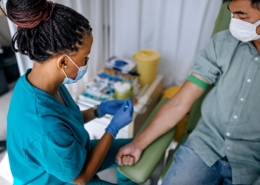 https://carethatfitsyou.org/wp-content/uploads/2022/04/CTFYArticleHeader2_Small_1338750215.jpg
1708
2560
Administrator
https://carethatfitsyou.org/wp-content/uploads/2020/04/care-that-fits-you.png
Administrator2022-04-05 17:14:022024-06-12 19:47:08What to Expect: Getting Tested for STDs/STIs
https://carethatfitsyou.org/wp-content/uploads/2022/04/CTFYArticleHeader2_Small_1338750215.jpg
1708
2560
Administrator
https://carethatfitsyou.org/wp-content/uploads/2020/04/care-that-fits-you.png
Administrator2022-04-05 17:14:022024-06-12 19:47:08What to Expect: Getting Tested for STDs/STIs https://carethatfitsyou.org/wp-content/uploads/2020/03/Recently-diagnosed-with-HIV-Ask-your-doctor-these-questions.jpg
350
480
Administrator
https://carethatfitsyou.org/wp-content/uploads/2020/04/care-that-fits-you.png
Administrator2022-01-31 19:30:162023-12-29 19:32:03Apretude – the first injectable PrEP
https://carethatfitsyou.org/wp-content/uploads/2020/03/Recently-diagnosed-with-HIV-Ask-your-doctor-these-questions.jpg
350
480
Administrator
https://carethatfitsyou.org/wp-content/uploads/2020/04/care-that-fits-you.png
Administrator2022-01-31 19:30:162023-12-29 19:32:03Apretude – the first injectable PrEP https://carethatfitsyou.org/wp-content/uploads/2021/06/40_b-1.jpg
350
480
Administrator
https://carethatfitsyou.org/wp-content/uploads/2020/04/care-that-fits-you.png
Administrator2021-06-11 19:31:522021-09-23 15:59:52Getting your partners treated for chlamydia
https://carethatfitsyou.org/wp-content/uploads/2021/06/40_b-1.jpg
350
480
Administrator
https://carethatfitsyou.org/wp-content/uploads/2020/04/care-that-fits-you.png
Administrator2021-06-11 19:31:522021-09-23 15:59:52Getting your partners treated for chlamydia https://carethatfitsyou.org/wp-content/uploads/2020/03/Talking-to-your-doctor-about-PrEP-f.jpg
350
480
ctfyadmin
https://carethatfitsyou.org/wp-content/uploads/2020/04/care-that-fits-you.png
ctfyadmin2020-03-23 21:37:482024-02-28 19:58:12Talking to your provider about PrEP
https://carethatfitsyou.org/wp-content/uploads/2020/03/Talking-to-your-doctor-about-PrEP-f.jpg
350
480
ctfyadmin
https://carethatfitsyou.org/wp-content/uploads/2020/04/care-that-fits-you.png
ctfyadmin2020-03-23 21:37:482024-02-28 19:58:12Talking to your provider about PrEP https://carethatfitsyou.org/wp-content/uploads/2020/03/How-do-I-choose-the-right-condom-f.jpg
350
480
ctfyadmin
https://carethatfitsyou.org/wp-content/uploads/2020/04/care-that-fits-you.png
ctfyadmin2020-03-23 21:26:382021-09-23 16:07:46How do I choose the right condom?
https://carethatfitsyou.org/wp-content/uploads/2020/03/How-do-I-choose-the-right-condom-f.jpg
350
480
ctfyadmin
https://carethatfitsyou.org/wp-content/uploads/2020/04/care-that-fits-you.png
ctfyadmin2020-03-23 21:26:382021-09-23 16:07:46How do I choose the right condom? https://carethatfitsyou.org/wp-content/uploads/2020/03/Conversation-starters-f.jpg
350
480
ctfyadmin
https://carethatfitsyou.org/wp-content/uploads/2020/04/care-that-fits-you.png
ctfyadmin2020-03-23 21:22:082021-09-23 16:08:20Conversation starters
https://carethatfitsyou.org/wp-content/uploads/2020/03/Conversation-starters-f.jpg
350
480
ctfyadmin
https://carethatfitsyou.org/wp-content/uploads/2020/04/care-that-fits-you.png
ctfyadmin2020-03-23 21:22:082021-09-23 16:08:20Conversation starters https://carethatfitsyou.org/wp-content/uploads/2020/03/Whats-the-deal-with-oral-sex-f.jpg
350
480
ctfyadmin
https://carethatfitsyou.org/wp-content/uploads/2020/04/care-that-fits-you.png
ctfyadmin2020-03-23 21:03:022021-09-23 16:08:54What’s the deal with oral sex?
https://carethatfitsyou.org/wp-content/uploads/2020/03/Whats-the-deal-with-oral-sex-f.jpg
350
480
ctfyadmin
https://carethatfitsyou.org/wp-content/uploads/2020/04/care-that-fits-you.png
ctfyadmin2020-03-23 21:03:022021-09-23 16:08:54What’s the deal with oral sex? https://carethatfitsyou.org/wp-content/uploads/2020/03/Tips-for-coming-out-to-your-doctor-f.jpg
350
480
ctfyadmin
https://carethatfitsyou.org/wp-content/uploads/2020/04/care-that-fits-you.png
ctfyadmin2020-03-23 20:59:162021-09-23 16:09:28Tips for coming out to your doctor
https://carethatfitsyou.org/wp-content/uploads/2020/03/Tips-for-coming-out-to-your-doctor-f.jpg
350
480
ctfyadmin
https://carethatfitsyou.org/wp-content/uploads/2020/04/care-that-fits-you.png
ctfyadmin2020-03-23 20:59:162021-09-23 16:09:28Tips for coming out to your doctor https://carethatfitsyou.org/wp-content/uploads/2020/03/Practicing-safer-sex-when-you-have-genital-herpes-f.jpg
350
480
ctfyadmin
https://carethatfitsyou.org/wp-content/uploads/2020/04/care-that-fits-you.png
ctfyadmin2020-03-23 20:54:232021-09-23 15:03:04Practicing safer sex when you have genital herpes
https://carethatfitsyou.org/wp-content/uploads/2020/03/Practicing-safer-sex-when-you-have-genital-herpes-f.jpg
350
480
ctfyadmin
https://carethatfitsyou.org/wp-content/uploads/2020/04/care-that-fits-you.png
ctfyadmin2020-03-23 20:54:232021-09-23 15:03:04Practicing safer sex when you have genital herpes https://carethatfitsyou.org/wp-content/uploads/2020/03/You-tested-positive-for-gonorrhea-or-chlamydia-Whats-next-f.jpg
350
480
ctfyadmin
https://carethatfitsyou.org/wp-content/uploads/2020/04/care-that-fits-you.png
ctfyadmin2020-03-23 20:50:102021-09-23 15:03:46You tested positive for gonorrhea or chlamydia. What’s next?
https://carethatfitsyou.org/wp-content/uploads/2020/03/You-tested-positive-for-gonorrhea-or-chlamydia-Whats-next-f.jpg
350
480
ctfyadmin
https://carethatfitsyou.org/wp-content/uploads/2020/04/care-that-fits-you.png
ctfyadmin2020-03-23 20:50:102021-09-23 15:03:46You tested positive for gonorrhea or chlamydia. What’s next? https://carethatfitsyou.org/wp-content/uploads/2020/03/You-tested-positive-for-HIV-Now-what-f.jpg
350
480
ctfyadmin
https://carethatfitsyou.org/wp-content/uploads/2020/04/care-that-fits-you.png
ctfyadmin2020-03-23 20:45:282021-09-23 15:04:34You tested positive for HIV. Now what?
https://carethatfitsyou.org/wp-content/uploads/2020/03/You-tested-positive-for-HIV-Now-what-f.jpg
350
480
ctfyadmin
https://carethatfitsyou.org/wp-content/uploads/2020/04/care-that-fits-you.png
ctfyadmin2020-03-23 20:45:282021-09-23 15:04:34You tested positive for HIV. Now what? https://carethatfitsyou.org/wp-content/uploads/2020/03/Ask-for-these-tests-at-your-next-checkup-f.jpg
350
480
ctfyadmin
https://carethatfitsyou.org/wp-content/uploads/2020/04/care-that-fits-you.png
ctfyadmin2020-03-23 20:17:462023-11-13 03:15:47Ask for these tests at your next checkup
https://carethatfitsyou.org/wp-content/uploads/2020/03/Ask-for-these-tests-at-your-next-checkup-f.jpg
350
480
ctfyadmin
https://carethatfitsyou.org/wp-content/uploads/2020/04/care-that-fits-you.png
ctfyadmin2020-03-23 20:17:462023-11-13 03:15:47Ask for these tests at your next checkup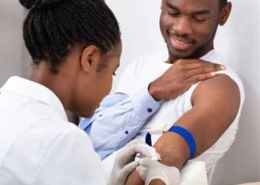 https://carethatfitsyou.org/wp-content/uploads/2020/03/Does-HIV-undetectable-mean-HIV-untransmittable-f3.jpg
350
480
ctfyadmin
https://carethatfitsyou.org/wp-content/uploads/2020/04/care-that-fits-you.png
ctfyadmin2020-03-23 20:13:492021-09-23 15:26:46Does HIV undetectable mean HIV untransmittable?
https://carethatfitsyou.org/wp-content/uploads/2020/03/Does-HIV-undetectable-mean-HIV-untransmittable-f3.jpg
350
480
ctfyadmin
https://carethatfitsyou.org/wp-content/uploads/2020/04/care-that-fits-you.png
ctfyadmin2020-03-23 20:13:492021-09-23 15:26:46Does HIV undetectable mean HIV untransmittable? https://carethatfitsyou.org/wp-content/uploads/2020/03/Eight-conversations-to-have-with-your-doctor-f.jpg
350
480
ctfyadmin
https://carethatfitsyou.org/wp-content/uploads/2020/04/care-that-fits-you.png
ctfyadmin2020-03-23 17:56:462021-09-23 15:28:17Eight conversations to have with your doctor
https://carethatfitsyou.org/wp-content/uploads/2020/03/Eight-conversations-to-have-with-your-doctor-f.jpg
350
480
ctfyadmin
https://carethatfitsyou.org/wp-content/uploads/2020/04/care-that-fits-you.png
ctfyadmin2020-03-23 17:56:462021-09-23 15:28:17Eight conversations to have with your doctor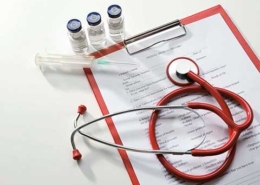 https://carethatfitsyou.org/wp-content/uploads/2020/03/Hep-A-B-C-Whats-the-difference-Light.jpg
350
480
ctfyadmin
https://carethatfitsyou.org/wp-content/uploads/2020/04/care-that-fits-you.png
ctfyadmin2020-03-23 17:29:052024-02-28 19:56:45Hep A, B, and C: What’s the difference?
https://carethatfitsyou.org/wp-content/uploads/2020/03/Hep-A-B-C-Whats-the-difference-Light.jpg
350
480
ctfyadmin
https://carethatfitsyou.org/wp-content/uploads/2020/04/care-that-fits-you.png
ctfyadmin2020-03-23 17:29:052024-02-28 19:56:45Hep A, B, and C: What’s the difference? https://carethatfitsyou.org/wp-content/uploads/2020/03/A-few-things-to-know-about-syphilis-f.jpg
350
480
ctfyadmin
https://carethatfitsyou.org/wp-content/uploads/2020/04/care-that-fits-you.png
ctfyadmin2020-03-23 16:42:362024-06-12 19:49:33A few things to know about syphilis
https://carethatfitsyou.org/wp-content/uploads/2020/03/A-few-things-to-know-about-syphilis-f.jpg
350
480
ctfyadmin
https://carethatfitsyou.org/wp-content/uploads/2020/04/care-that-fits-you.png
ctfyadmin2020-03-23 16:42:362024-06-12 19:49:33A few things to know about syphilis https://carethatfitsyou.org/wp-content/uploads/2020/03/PrEP-vs-PEP-Whats-the-difference-f.jpg
350
480
ctfyadmin
https://carethatfitsyou.org/wp-content/uploads/2020/04/care-that-fits-you.png
ctfyadmin2020-03-21 22:29:262023-12-15 18:19:24PrEP vs PEP: What’s the difference?
https://carethatfitsyou.org/wp-content/uploads/2020/03/PrEP-vs-PEP-Whats-the-difference-f.jpg
350
480
ctfyadmin
https://carethatfitsyou.org/wp-content/uploads/2020/04/care-that-fits-you.png
ctfyadmin2020-03-21 22:29:262023-12-15 18:19:24PrEP vs PEP: What’s the difference? https://carethatfitsyou.org/wp-content/uploads/2020/03/Talking-to-your-partner-about-safer-sex-f.jpg
350
480
ctfyadmin
https://carethatfitsyou.org/wp-content/uploads/2020/04/care-that-fits-you.png
ctfyadmin2020-03-21 22:23:442021-09-23 15:57:27Talking to your partner about safer sex
https://carethatfitsyou.org/wp-content/uploads/2020/03/Talking-to-your-partner-about-safer-sex-f.jpg
350
480
ctfyadmin
https://carethatfitsyou.org/wp-content/uploads/2020/04/care-that-fits-you.png
ctfyadmin2020-03-21 22:23:442021-09-23 15:57:27Talking to your partner about safer sex https://carethatfitsyou.org/wp-content/uploads/2020/03/How-to-pay-for-PrEP-f-1.jpg
350
480
ctfyadmin
https://carethatfitsyou.org/wp-content/uploads/2020/04/care-that-fits-you.png
ctfyadmin2020-03-13 19:18:212024-06-12 19:48:11How to pay for PrEP
https://carethatfitsyou.org/wp-content/uploads/2020/03/How-to-pay-for-PrEP-f-1.jpg
350
480
ctfyadmin
https://carethatfitsyou.org/wp-content/uploads/2020/04/care-that-fits-you.png
ctfyadmin2020-03-13 19:18:212024-06-12 19:48:11How to pay for PrEP https://carethatfitsyou.org/wp-content/uploads/2023/01/CTFY-Web-image-8315_Undetectable.jpg
325
570
Admin
https://carethatfitsyou.org/wp-content/uploads/2020/04/care-that-fits-you.png
Admin2024-05-20 20:01:352024-06-10 19:21:29Información de la Mpox
https://carethatfitsyou.org/wp-content/uploads/2023/01/CTFY-Web-image-8315_Undetectable.jpg
325
570
Admin
https://carethatfitsyou.org/wp-content/uploads/2020/04/care-that-fits-you.png
Admin2024-05-20 20:01:352024-06-10 19:21:29Información de la Mpox https://carethatfitsyou.org/wp-content/uploads/2023/01/CTFY-Web-image-7658-hepa.jpg
325
570
Admin
https://carethatfitsyou.org/wp-content/uploads/2020/04/care-that-fits-you.png
Admin2024-05-17 17:52:322024-05-28 21:22:00DoxyPEP: Find out if it’s right for you
https://carethatfitsyou.org/wp-content/uploads/2023/01/CTFY-Web-image-7658-hepa.jpg
325
570
Admin
https://carethatfitsyou.org/wp-content/uploads/2020/04/care-that-fits-you.png
Admin2024-05-17 17:52:322024-05-28 21:22:00DoxyPEP: Find out if it’s right for you https://carethatfitsyou.org/wp-content/uploads/2023/10/8375_Clean-2.jpg
565
1200
Admin
https://carethatfitsyou.org/wp-content/uploads/2020/04/care-that-fits-you.png
Admin2023-10-12 13:28:512023-12-15 17:42:27Shigella: Protect yourself and your partners
https://carethatfitsyou.org/wp-content/uploads/2023/10/8375_Clean-2.jpg
565
1200
Admin
https://carethatfitsyou.org/wp-content/uploads/2020/04/care-that-fits-you.png
Admin2023-10-12 13:28:512023-12-15 17:42:27Shigella: Protect yourself and your partners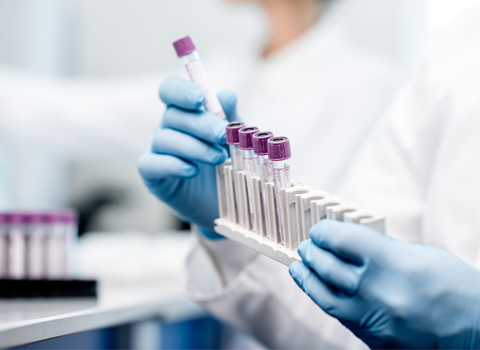 https://carethatfitsyou.org/wp-content/uploads/2023/01/is-there-a-cure-STDs-480x350-1.png
350
480
Administrator
https://carethatfitsyou.org/wp-content/uploads/2020/04/care-that-fits-you.png
Administrator2023-02-01 21:31:302023-02-03 17:45:21New Gonorrhea Strain: What You Need to Know
https://carethatfitsyou.org/wp-content/uploads/2023/01/is-there-a-cure-STDs-480x350-1.png
350
480
Administrator
https://carethatfitsyou.org/wp-content/uploads/2020/04/care-that-fits-you.png
Administrator2023-02-01 21:31:302023-02-03 17:45:21New Gonorrhea Strain: What You Need to Know https://carethatfitsyou.org/wp-content/uploads/2022/08/Mpox_SelfCare_ResizedPhotos_300x250_0723.jpg
250
300
Administrator
https://carethatfitsyou.org/wp-content/uploads/2020/04/care-that-fits-you.png
Administrator2022-08-18 16:22:192024-06-10 19:42:13Mpox Information
https://carethatfitsyou.org/wp-content/uploads/2022/08/Mpox_SelfCare_ResizedPhotos_300x250_0723.jpg
250
300
Administrator
https://carethatfitsyou.org/wp-content/uploads/2020/04/care-that-fits-you.png
Administrator2022-08-18 16:22:192024-06-10 19:42:13Mpox Information https://carethatfitsyou.org/wp-content/uploads/2022/04/HIV-testing.jpg
300
1000
Administrator
https://carethatfitsyou.org/wp-content/uploads/2020/04/care-that-fits-you.png
Administrator2022-04-19 15:23:482024-06-12 19:52:34What to Expect: HIV Testing
https://carethatfitsyou.org/wp-content/uploads/2022/04/HIV-testing.jpg
300
1000
Administrator
https://carethatfitsyou.org/wp-content/uploads/2020/04/care-that-fits-you.png
Administrator2022-04-19 15:23:482024-06-12 19:52:34What to Expect: HIV Testing https://carethatfitsyou.org/wp-content/uploads/2022/04/CTFYArticleHeader1_Small_1547949728.jpg
1707
2560
Administrator
https://carethatfitsyou.org/wp-content/uploads/2020/04/care-that-fits-you.png
Administrator2022-04-05 17:14:162023-12-29 19:26:11What to Expect: Starting PrEP
https://carethatfitsyou.org/wp-content/uploads/2022/04/CTFYArticleHeader1_Small_1547949728.jpg
1707
2560
Administrator
https://carethatfitsyou.org/wp-content/uploads/2020/04/care-that-fits-you.png
Administrator2022-04-05 17:14:162023-12-29 19:26:11What to Expect: Starting PrEP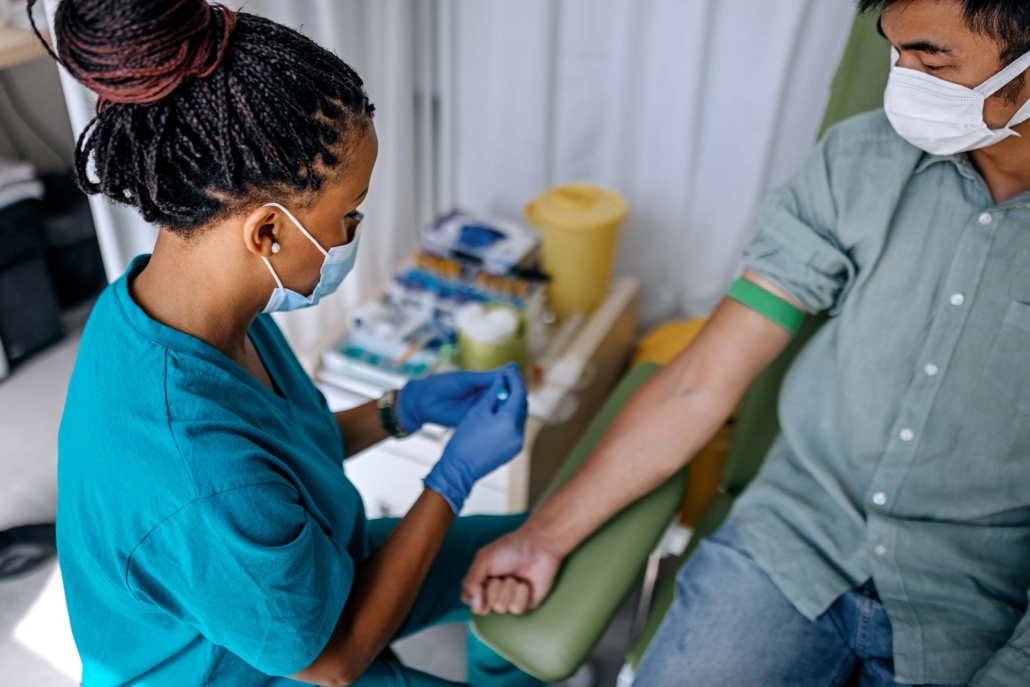 https://carethatfitsyou.org/wp-content/uploads/2022/04/CTFYArticleHeader2_Small_1338750215.jpg
1708
2560
Administrator
https://carethatfitsyou.org/wp-content/uploads/2020/04/care-that-fits-you.png
Administrator2022-04-05 17:14:022024-06-12 19:47:08What to Expect: Getting Tested for STDs/STIs
https://carethatfitsyou.org/wp-content/uploads/2022/04/CTFYArticleHeader2_Small_1338750215.jpg
1708
2560
Administrator
https://carethatfitsyou.org/wp-content/uploads/2020/04/care-that-fits-you.png
Administrator2022-04-05 17:14:022024-06-12 19:47:08What to Expect: Getting Tested for STDs/STIs https://carethatfitsyou.org/wp-content/uploads/2020/03/Recently-diagnosed-with-HIV-Ask-your-doctor-these-questions.jpg
350
480
Administrator
https://carethatfitsyou.org/wp-content/uploads/2020/04/care-that-fits-you.png
Administrator2022-01-31 19:30:162023-12-29 19:32:03Apretude – the first injectable PrEP
https://carethatfitsyou.org/wp-content/uploads/2020/03/Recently-diagnosed-with-HIV-Ask-your-doctor-these-questions.jpg
350
480
Administrator
https://carethatfitsyou.org/wp-content/uploads/2020/04/care-that-fits-you.png
Administrator2022-01-31 19:30:162023-12-29 19:32:03Apretude – the first injectable PrEP https://carethatfitsyou.org/wp-content/uploads/2021/06/40_b-1.jpg
350
480
Administrator
https://carethatfitsyou.org/wp-content/uploads/2020/04/care-that-fits-you.png
Administrator2021-06-11 19:31:522021-09-23 15:59:52Getting your partners treated for chlamydia
https://carethatfitsyou.org/wp-content/uploads/2021/06/40_b-1.jpg
350
480
Administrator
https://carethatfitsyou.org/wp-content/uploads/2020/04/care-that-fits-you.png
Administrator2021-06-11 19:31:522021-09-23 15:59:52Getting your partners treated for chlamydia https://carethatfitsyou.org/wp-content/uploads/2020/03/Talking-to-your-doctor-about-PrEP-f.jpg
350
480
ctfyadmin
https://carethatfitsyou.org/wp-content/uploads/2020/04/care-that-fits-you.png
ctfyadmin2020-03-23 21:37:482024-02-28 19:58:12Talking to your provider about PrEP
https://carethatfitsyou.org/wp-content/uploads/2020/03/Talking-to-your-doctor-about-PrEP-f.jpg
350
480
ctfyadmin
https://carethatfitsyou.org/wp-content/uploads/2020/04/care-that-fits-you.png
ctfyadmin2020-03-23 21:37:482024-02-28 19:58:12Talking to your provider about PrEP https://carethatfitsyou.org/wp-content/uploads/2020/03/How-do-I-choose-the-right-condom-f.jpg
350
480
ctfyadmin
https://carethatfitsyou.org/wp-content/uploads/2020/04/care-that-fits-you.png
ctfyadmin2020-03-23 21:26:382021-09-23 16:07:46How do I choose the right condom?
https://carethatfitsyou.org/wp-content/uploads/2020/03/How-do-I-choose-the-right-condom-f.jpg
350
480
ctfyadmin
https://carethatfitsyou.org/wp-content/uploads/2020/04/care-that-fits-you.png
ctfyadmin2020-03-23 21:26:382021-09-23 16:07:46How do I choose the right condom? https://carethatfitsyou.org/wp-content/uploads/2020/03/Conversation-starters-f.jpg
350
480
ctfyadmin
https://carethatfitsyou.org/wp-content/uploads/2020/04/care-that-fits-you.png
ctfyadmin2020-03-23 21:22:082021-09-23 16:08:20Conversation starters
https://carethatfitsyou.org/wp-content/uploads/2020/03/Conversation-starters-f.jpg
350
480
ctfyadmin
https://carethatfitsyou.org/wp-content/uploads/2020/04/care-that-fits-you.png
ctfyadmin2020-03-23 21:22:082021-09-23 16:08:20Conversation starters https://carethatfitsyou.org/wp-content/uploads/2020/03/Whats-the-deal-with-oral-sex-f.jpg
350
480
ctfyadmin
https://carethatfitsyou.org/wp-content/uploads/2020/04/care-that-fits-you.png
ctfyadmin2020-03-23 21:03:022021-09-23 16:08:54What’s the deal with oral sex?
https://carethatfitsyou.org/wp-content/uploads/2020/03/Whats-the-deal-with-oral-sex-f.jpg
350
480
ctfyadmin
https://carethatfitsyou.org/wp-content/uploads/2020/04/care-that-fits-you.png
ctfyadmin2020-03-23 21:03:022021-09-23 16:08:54What’s the deal with oral sex? https://carethatfitsyou.org/wp-content/uploads/2020/03/Tips-for-coming-out-to-your-doctor-f.jpg
350
480
ctfyadmin
https://carethatfitsyou.org/wp-content/uploads/2020/04/care-that-fits-you.png
ctfyadmin2020-03-23 20:59:162021-09-23 16:09:28Tips for coming out to your doctor
https://carethatfitsyou.org/wp-content/uploads/2020/03/Tips-for-coming-out-to-your-doctor-f.jpg
350
480
ctfyadmin
https://carethatfitsyou.org/wp-content/uploads/2020/04/care-that-fits-you.png
ctfyadmin2020-03-23 20:59:162021-09-23 16:09:28Tips for coming out to your doctor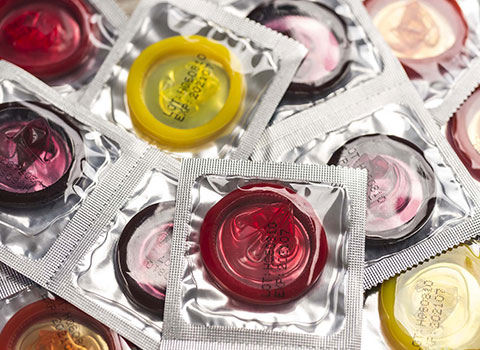 https://carethatfitsyou.org/wp-content/uploads/2020/03/Practicing-safer-sex-when-you-have-genital-herpes-f.jpg
350
480
ctfyadmin
https://carethatfitsyou.org/wp-content/uploads/2020/04/care-that-fits-you.png
ctfyadmin2020-03-23 20:54:232021-09-23 15:03:04Practicing safer sex when you have genital herpes
https://carethatfitsyou.org/wp-content/uploads/2020/03/Practicing-safer-sex-when-you-have-genital-herpes-f.jpg
350
480
ctfyadmin
https://carethatfitsyou.org/wp-content/uploads/2020/04/care-that-fits-you.png
ctfyadmin2020-03-23 20:54:232021-09-23 15:03:04Practicing safer sex when you have genital herpes https://carethatfitsyou.org/wp-content/uploads/2020/03/You-tested-positive-for-gonorrhea-or-chlamydia-Whats-next-f.jpg
350
480
ctfyadmin
https://carethatfitsyou.org/wp-content/uploads/2020/04/care-that-fits-you.png
ctfyadmin2020-03-23 20:50:102021-09-23 15:03:46You tested positive for gonorrhea or chlamydia. What’s next?
https://carethatfitsyou.org/wp-content/uploads/2020/03/You-tested-positive-for-gonorrhea-or-chlamydia-Whats-next-f.jpg
350
480
ctfyadmin
https://carethatfitsyou.org/wp-content/uploads/2020/04/care-that-fits-you.png
ctfyadmin2020-03-23 20:50:102021-09-23 15:03:46You tested positive for gonorrhea or chlamydia. What’s next? https://carethatfitsyou.org/wp-content/uploads/2020/03/You-tested-positive-for-HIV-Now-what-f.jpg
350
480
ctfyadmin
https://carethatfitsyou.org/wp-content/uploads/2020/04/care-that-fits-you.png
ctfyadmin2020-03-23 20:45:282021-09-23 15:04:34You tested positive for HIV. Now what?
https://carethatfitsyou.org/wp-content/uploads/2020/03/You-tested-positive-for-HIV-Now-what-f.jpg
350
480
ctfyadmin
https://carethatfitsyou.org/wp-content/uploads/2020/04/care-that-fits-you.png
ctfyadmin2020-03-23 20:45:282021-09-23 15:04:34You tested positive for HIV. Now what? https://carethatfitsyou.org/wp-content/uploads/2020/03/Ask-for-these-tests-at-your-next-checkup-f.jpg
350
480
ctfyadmin
https://carethatfitsyou.org/wp-content/uploads/2020/04/care-that-fits-you.png
ctfyadmin2020-03-23 20:17:462023-11-13 03:15:47Ask for these tests at your next checkup
https://carethatfitsyou.org/wp-content/uploads/2020/03/Ask-for-these-tests-at-your-next-checkup-f.jpg
350
480
ctfyadmin
https://carethatfitsyou.org/wp-content/uploads/2020/04/care-that-fits-you.png
ctfyadmin2020-03-23 20:17:462023-11-13 03:15:47Ask for these tests at your next checkup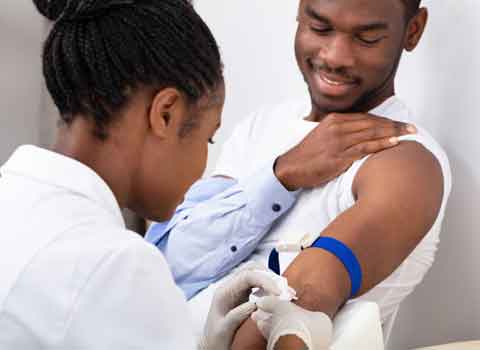 https://carethatfitsyou.org/wp-content/uploads/2020/03/Does-HIV-undetectable-mean-HIV-untransmittable-f3.jpg
350
480
ctfyadmin
https://carethatfitsyou.org/wp-content/uploads/2020/04/care-that-fits-you.png
ctfyadmin2020-03-23 20:13:492021-09-23 15:26:46Does HIV undetectable mean HIV untransmittable?
https://carethatfitsyou.org/wp-content/uploads/2020/03/Does-HIV-undetectable-mean-HIV-untransmittable-f3.jpg
350
480
ctfyadmin
https://carethatfitsyou.org/wp-content/uploads/2020/04/care-that-fits-you.png
ctfyadmin2020-03-23 20:13:492021-09-23 15:26:46Does HIV undetectable mean HIV untransmittable? https://carethatfitsyou.org/wp-content/uploads/2020/03/Eight-conversations-to-have-with-your-doctor-f.jpg
350
480
ctfyadmin
https://carethatfitsyou.org/wp-content/uploads/2020/04/care-that-fits-you.png
ctfyadmin2020-03-23 17:56:462021-09-23 15:28:17Eight conversations to have with your doctor
https://carethatfitsyou.org/wp-content/uploads/2020/03/Eight-conversations-to-have-with-your-doctor-f.jpg
350
480
ctfyadmin
https://carethatfitsyou.org/wp-content/uploads/2020/04/care-that-fits-you.png
ctfyadmin2020-03-23 17:56:462021-09-23 15:28:17Eight conversations to have with your doctor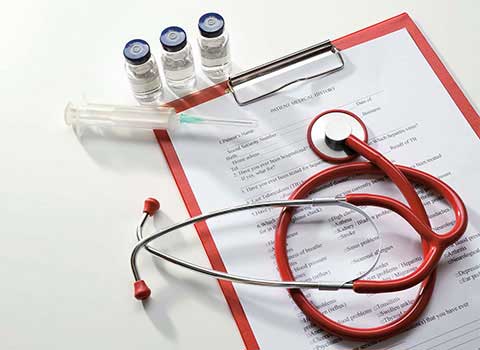 https://carethatfitsyou.org/wp-content/uploads/2020/03/Hep-A-B-C-Whats-the-difference-Light.jpg
350
480
ctfyadmin
https://carethatfitsyou.org/wp-content/uploads/2020/04/care-that-fits-you.png
ctfyadmin2020-03-23 17:29:052024-02-28 19:56:45Hep A, B, and C: What’s the difference?
https://carethatfitsyou.org/wp-content/uploads/2020/03/Hep-A-B-C-Whats-the-difference-Light.jpg
350
480
ctfyadmin
https://carethatfitsyou.org/wp-content/uploads/2020/04/care-that-fits-you.png
ctfyadmin2020-03-23 17:29:052024-02-28 19:56:45Hep A, B, and C: What’s the difference? https://carethatfitsyou.org/wp-content/uploads/2020/03/A-few-things-to-know-about-syphilis-f.jpg
350
480
ctfyadmin
https://carethatfitsyou.org/wp-content/uploads/2020/04/care-that-fits-you.png
ctfyadmin2020-03-23 16:42:362024-06-12 19:49:33A few things to know about syphilis
https://carethatfitsyou.org/wp-content/uploads/2020/03/A-few-things-to-know-about-syphilis-f.jpg
350
480
ctfyadmin
https://carethatfitsyou.org/wp-content/uploads/2020/04/care-that-fits-you.png
ctfyadmin2020-03-23 16:42:362024-06-12 19:49:33A few things to know about syphilis https://carethatfitsyou.org/wp-content/uploads/2020/03/PrEP-vs-PEP-Whats-the-difference-f.jpg
350
480
ctfyadmin
https://carethatfitsyou.org/wp-content/uploads/2020/04/care-that-fits-you.png
ctfyadmin2020-03-21 22:29:262023-12-15 18:19:24PrEP vs PEP: What’s the difference?
https://carethatfitsyou.org/wp-content/uploads/2020/03/PrEP-vs-PEP-Whats-the-difference-f.jpg
350
480
ctfyadmin
https://carethatfitsyou.org/wp-content/uploads/2020/04/care-that-fits-you.png
ctfyadmin2020-03-21 22:29:262023-12-15 18:19:24PrEP vs PEP: What’s the difference? https://carethatfitsyou.org/wp-content/uploads/2020/03/Talking-to-your-partner-about-safer-sex-f.jpg
350
480
ctfyadmin
https://carethatfitsyou.org/wp-content/uploads/2020/04/care-that-fits-you.png
ctfyadmin2020-03-21 22:23:442021-09-23 15:57:27Talking to your partner about safer sex
https://carethatfitsyou.org/wp-content/uploads/2020/03/Talking-to-your-partner-about-safer-sex-f.jpg
350
480
ctfyadmin
https://carethatfitsyou.org/wp-content/uploads/2020/04/care-that-fits-you.png
ctfyadmin2020-03-21 22:23:442021-09-23 15:57:27Talking to your partner about safer sexLooking for PrEP or
other services?
Search for services near you.
Is PrEP right for you?
Take a short quiz to learn more.






